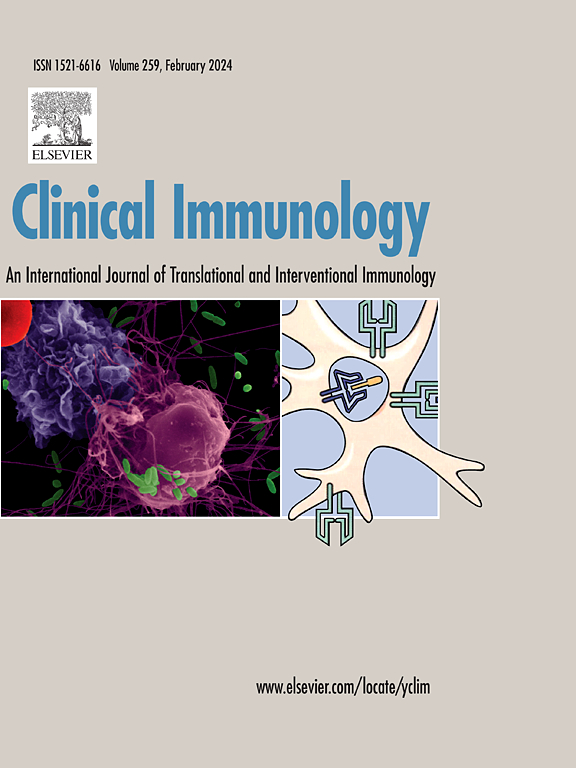新型janus激酶3抑制剂利来替尼抑制T细胞和B细胞反应,防止小鼠心脏移植急性排斥反应
IF 3.8
3区 医学
Q2 IMMUNOLOGY
引用次数: 0
摘要
急性排斥反应是早期同种异体移植失败的主要原因。目前的免疫抑制方案有缺点,如毒性和对B细胞的抑制作用很小。因此,开发新型、有效、选择性的抗急性排斥药物至关重要。因此,本研究旨在探讨新型janus kinase 3抑制剂ritlecitinib (PF-06651600)对T细胞和B细胞的抑制作用,以及对同种异体移植急性排斥反应的预防作用。建立小鼠心脏移植模型,结合细胞培养和免疫组织化学技术。体外实验表明,利来替尼可抑制naïve CD4+ T细胞向辅助性T细胞(Th)1和Th17细胞的分化,降低相关炎症因子,抑制CD4+和CD8+ T细胞的增殖。此外,利来替尼抑制B细胞的活化、分化和抗体的产生。体内实验显示,利来替尼可显著延长同种异体移植物存活时间,降低血清供体特异性抗体免疫球蛋白G水平,减轻同种异体移植物损伤,减少同种异体移植物C4d沉积和T、B、浆细胞浸润。此外,受体脾脏、淋巴结、骨髓和血液中的B细胞和浆细胞百分比和计数均显著降低。总的来说,利来替尼通过抑制T细胞和B细胞来预防心脏移植中的急性排斥反应,这表明它有潜力成为一种新的临床免疫抑制剂。本文章由计算机程序翻译,如有差异,请以英文原文为准。
Novel janus kinase 3 inhibitor ritlecitinib suppresses T and B cell responses to prevent acute cardiac allograft rejection in mice
Acute rejection is the main contributor to early allograft failure. Current immunosuppressive regimens have shortcomings, such as toxicity and minimal inhibitory effects on B cells. Hence, developing novel, effective, and selective anti-acute rejection drugs is crucial. Therefore, this study aimed to investigate the inhibitory effect of ritlecitinib (PF-06651600), a new janus kinase 3 inhibitor, on T and B cells, as well its preventive effects on acute allograft rejection. A murine cardiac transplantation model coupled with cell culture- and immunohistochemistry-based techniques was used. In vitro assays demonstrated that ritlecitinib inhibits naïve CD4+ T cell differentiation into T helper (Th)1 and Th17 cells, reduces relative inflammatory cytokines, and suppresses CD4+ and CD8+ T cell proliferation. Furthermore, ritlecitinib inhibited B cell activation and differentiation and antibody production. In vivo experiments revealed that ritlecitinib significantly prolongs allograft survival, decreases serum donor-specific antibody immunoglobulin G levels, alleviats allograft damage, and reduces C4d deposition and T, B, and plasma cell infiltration in allografts. Moreover, B and plasma cell percentages and counts were significantly decreased in recipient spleen, lymph nodes, bone marrow, and blood. Overall, ritlecitinib prevented acute rejection in cardiac transplantation by inhibiting T and B cells, suggesting its potential as a novel clinical immunosuppressant.
求助全文
通过发布文献求助,成功后即可免费获取论文全文。
去求助
来源期刊

Clinical immunology
医学-免疫学
CiteScore
12.30
自引率
1.20%
发文量
212
审稿时长
34 days
期刊介绍:
Clinical Immunology publishes original research delving into the molecular and cellular foundations of immunological diseases. Additionally, the journal includes reviews covering timely subjects in basic immunology, along with case reports and letters to the editor.
 求助内容:
求助内容: 应助结果提醒方式:
应助结果提醒方式:


